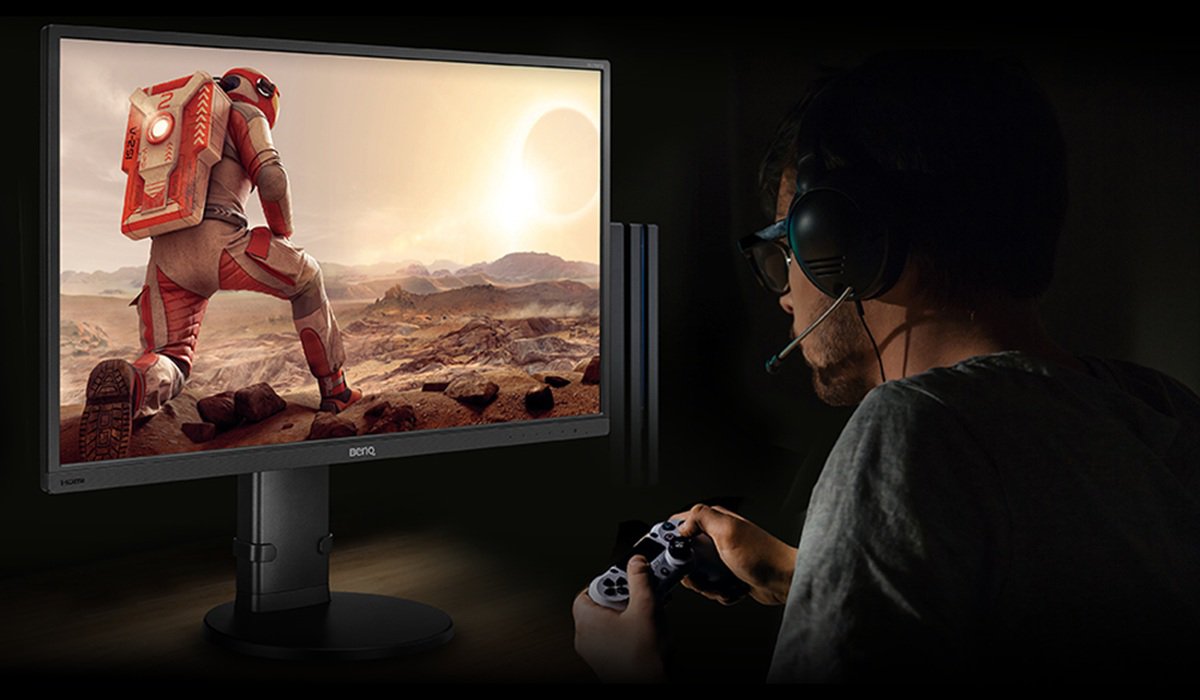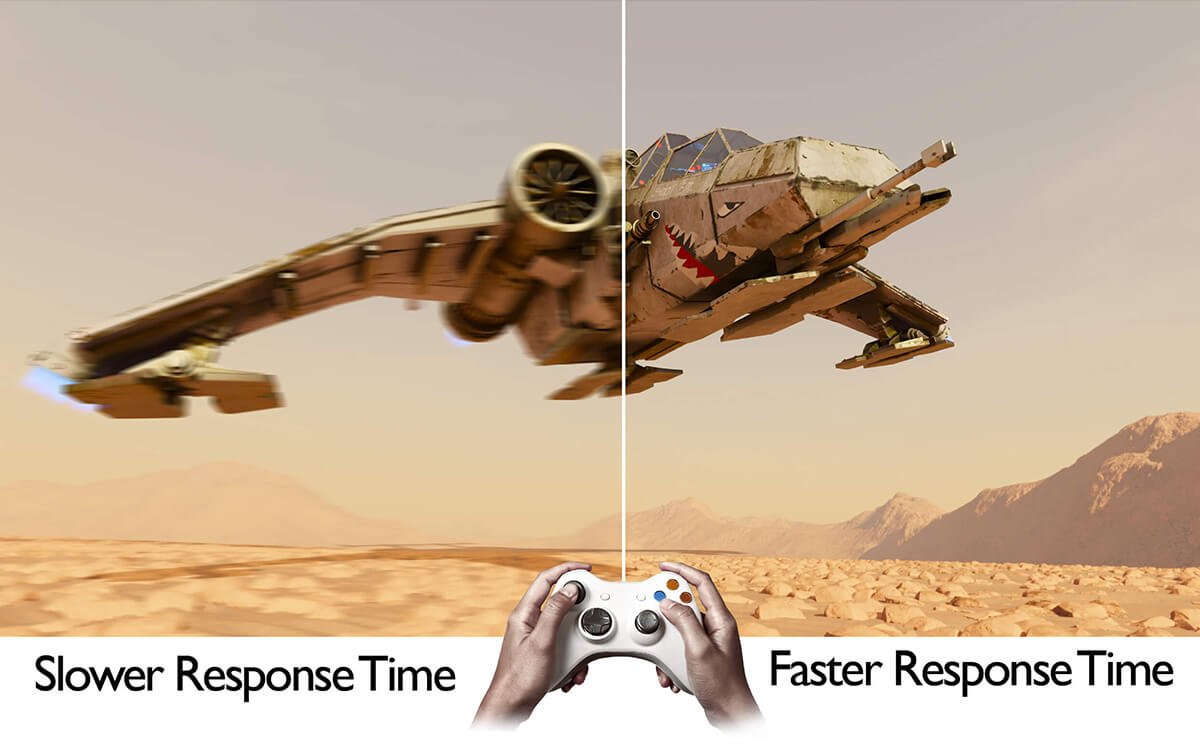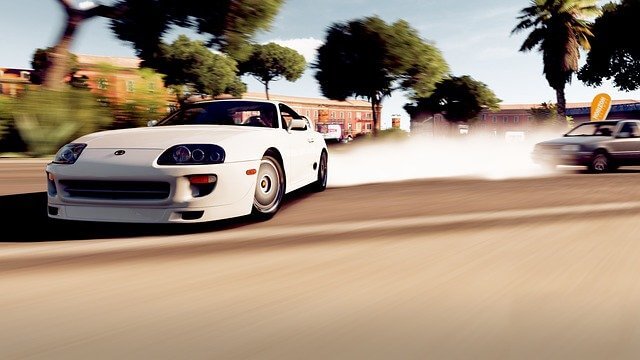Recommended Response Time for Gaming Monitors
This post may contain Amazon authorized links.
For gaming monitors, a recommended response time is between one to five milliseconds. Gamers benefit from low response times.
A fast response time ensures smooth gameplay and reduces motion blur. Finding a monitor with a low response time enhances the overall gaming experience. Optimal response times range from one to five milliseconds and are crucial for competitive gaming. By choosing a monitor with a fast response time, gamers can enjoy more fluid and crisp visuals during gameplay.
High response time can lead to input lag and hinder performance, making it essential for gamers to prioritize this factor when selecting a gaming monitor.

Credit: www.techspot.com
What Is Response Time For Gaming Monitors?
Responsive time in gaming monitors refers to the time it takes for a pixel to change from one color to another. A lower response time results in smoother and clearer motion, ensuring a better gaming experience. It is crucial to understand the significance of response time as it directly impacts the visual quality and responsiveness of the monitor during gameplay. Gamers should aim for a monitor with a low response time (ideally between one to five milliseconds) to minimize motion blur and ghosting, enhancing overall gaming performance. A high response time can lead to noticeable delays and image artifacts, affecting the immersive gaming experience. Therefore, when selecting a gaming monitor, it is essential to prioritize the response time to achieve optimal visual quality and responsiveness.

Credit: www.benq.com
Ideal Response Time For Gaming Monitors
For optimal gaming, it is recommended to choose a gaming monitor with a response time of one to five milliseconds. This ensures fast and accurate visuals, enhancing the overall gaming experience.
| Recommended response time range: Gamers should aim for monitors with a low response time of one to five milliseconds. |
| Factors to consider for optimal response time: When choosing a gaming monitor, look for a response time that minimizes motion blur and ghosting effects. |
| Impact of refresh rate on response time: A higher refresh rate complements a low response time, ensuring smoother gameplay and improved responsiveness. |
Choosing The Right Gaming Monitor
When choosing the right gaming monitor, it’s crucial to consider the recommended response time. Gamers should aim for a monitor with a low response time, ideally between one to five milliseconds, to ensure seamless and smooth gaming experiences. Response time plays a vital role in reducing motion blur and providing better overall performance for gaming enthusiasts.
| When choosing a gaming monitor, response time is crucial, ideally ranging from one to five milliseconds. Balancing response time with other features such as refresh rates and display types is important. LCD monitors generally offer faster response times compared to other display types, like LED. Consider the refresh rate, which impacts image smoothness, and input lag, affecting response speed. Comparing different types of displays can help determine the best fit for your gaming needs. |

Credit: www.benq.com
Common Misconceptions About Response Time
Common Misconceptions About Response Time: Some gamers may overemphasize the importance of a monitor’s response time. It’s crucial to understand that a low response time may come with trade-offs in other essential factors. Debunking myths surrounding response time can help in making informed choices.
Impact Of Response Time On Gaming Performance
Response time is a crucial factor to consider when choosing a gaming monitor. It directly impacts gaming performance and can greatly affect the overall gaming experience. A low response time is essential for reducing motion blur and ghosting, ensuring that fast-moving images appear crisp and clear. It also helps in improving input lag, which reduces the delay between a player’s action and its reflection on the screen. This results in better responsiveness and smoother gameplay.
In order to maximize visual clarity and smoothness, gamers should look for a monitor with a response time between one to five milliseconds. A monitor with a low response time will provide a more immersive gaming experience, allowing players to react quickly and stay competitive. It is important to note that response time is different from refresh rate, which refers to the number of times an image is updated on the screen per second. Both factors are important for optimal gaming performance, but response time specifically focuses on the speed at which pixels can change colors.
Frequently Asked Questions For Recommended Response Time For Gaming Monitors
What Is A Good Response Rate For A Gaming Monitor?
For gaming monitors, a good response rate is between one to five milliseconds for optimal performance.
How Fast Do Gaming Monitors Need To Be?
For optimal gaming, monitors should have a response time between one to five milliseconds. Monitor response time affects gameplay.
Is 5ms Response Time Bad For Gaming Monitor?
A 5ms response time is generally good for gaming monitors. It provides smooth and responsive gameplay without noticeable input lag.
Is 9ms Response Time Good?
A response time of 9ms is considered good for gaming monitors. Gamers should look for a monitor with a low response time between 1 to 5 milliseconds for optimal performance.
Conclusion
Gaming monitors with a response time of one to five milliseconds are recommended for optimal performance. The lower the response time, the better the gaming experience, as it reduces motion blur and ghosting. Consider the monitor’s response time as a crucial factor for achieving smooth and crisp visuals during gaming sessions.

Mohaimenul Islam Shawon is a professional blogger and content creator. Shawon has been a full-time blogger since 2019. He is the founder and editor of his successful blog, which covers topics such as technology, games, apps, digital gadgets, and more. He has a Bachelor’s degree in Computer Science & Engineering.




